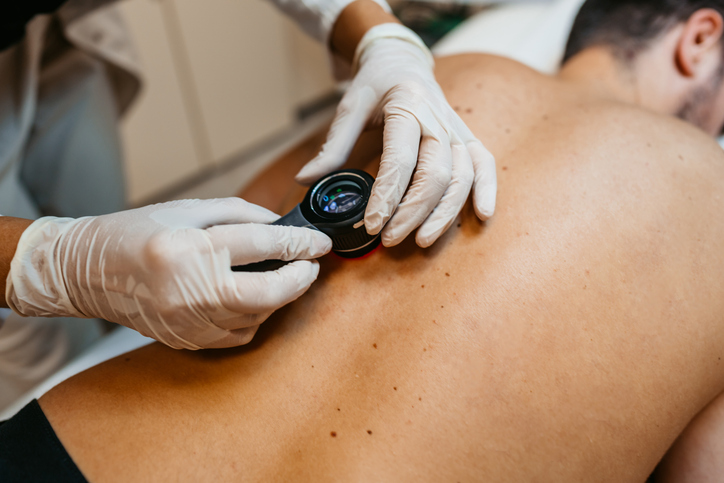
Bariatric surgery attenuates the risk of melanoma, according to a study published in JAMA Dermatology.
This nonrandomized controlled trial was comprised 4,047 participants from the Swedish Obese Subjects (SOS) study, an ongoing at 25 surgical departments and 480 primary health care centers in Sweden and was designed to examine outcomes after bariatric surgery. The study included 2,007 patients with obesity who underwent bariatric surgery, of which (n=266) underwent gastric bypass, (n = 376) underwent banding, and (n = 1365) had vertical banded gastroplasty. The control group (n = 2040) received the customary treatment for obesity at their primary health care centers. The study subjects were enrolled between September 1987 and January 2001. The researchers conducted data analysis from June 29, 2018, to November 22, 2018.
The study results showed study that bariatric surgery was associated with a “markedly reduced risk” developing of melanoma (adjusted subhazard ratio, 0.43; 95% CI, 0.21 to 0.87; P = .02; median follow-up, 18.1 years) and risk of skin cancer in general (adjusted subhazard ratio, 0.59; 95% CI, 0.35-0.99; P = .047). The researchers observed that cancer risk reduction was not associated with baseline body mass index or weight; insulin, glucose, lipid, and creatinine levels; diabetes; blood pressure; alcohol intake; or smoking.
“This provides further evidence for a connection between obesity and malignant skin cancer, and for the view that we should regard obesity as a risk factor for these forms of cancer,” says Magdalena Taube, the first author behind the study and a researcher in molecular and clinical medicine at Sahlgrenska Academy, University of Gothenburg, Sweden in a press release about the study.
https://twitter.com/thedextazlab/status/1212770821074239490
She added that: “We can say this with certainty now, thanks to our having an extremely well documented and described population that we’ve been able to monitor for a long time, and in which we can see very clearly what happens when a major, lasting weight loss takes place.”
Lower risk for malignant melanoma after bariatric surgery https://t.co/sioxr1XduT via @instapaper
— James Igoe (@JamesJosephIgoe) January 2, 2020
Lower risk for malignant melanoma after bariatric surgery https://t.co/FJcjKGd98h pic.twitter.com/srihFR6Wi8
— Bioengineer.org (@bioengineerorg) January 2, 2020






 © 2025 Mashup Media, LLC, a Formedics Property. All Rights Reserved.
© 2025 Mashup Media, LLC, a Formedics Property. All Rights Reserved.